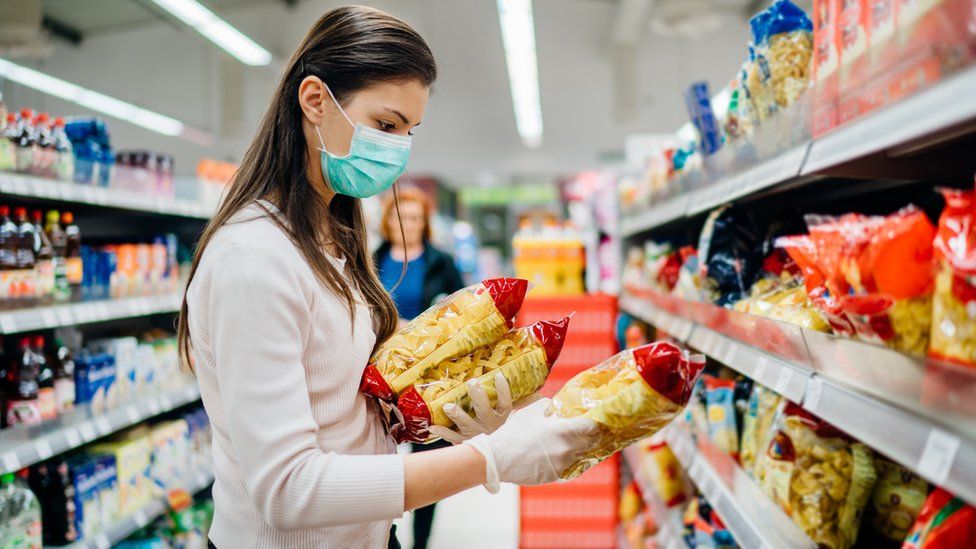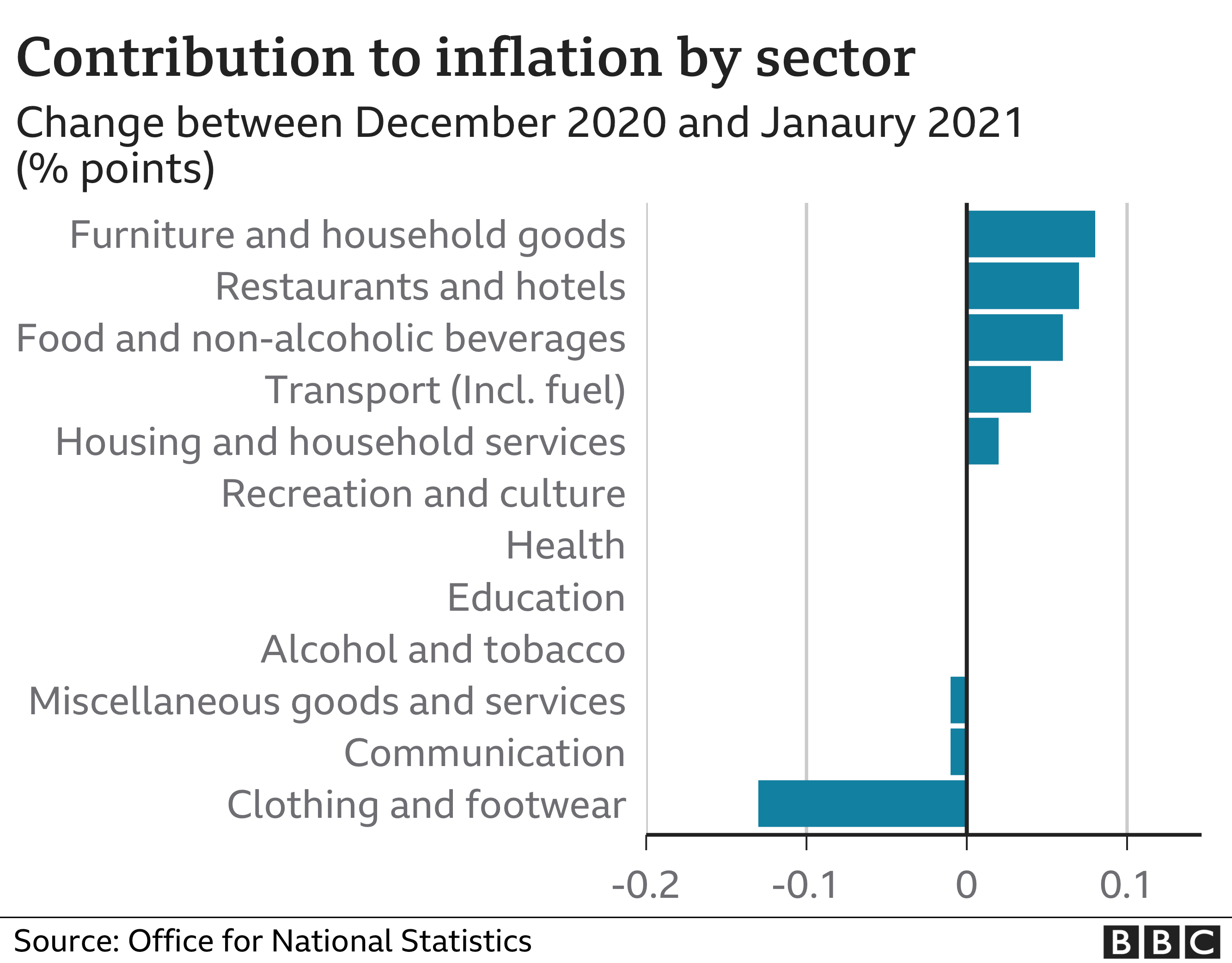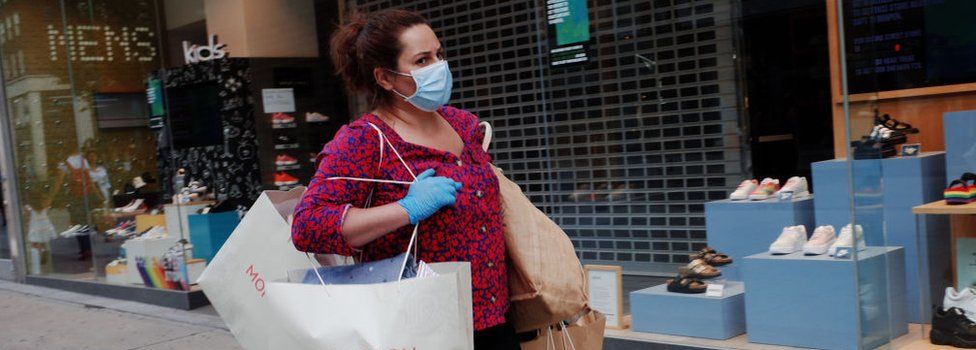
Prices rose in the UK last month despite lockdown restrictions forcing non-essential shops to shut.
Inflation, as measured by the Consumer Prices Index, rose 0.7% in the 12 months to January, up from December's 0.6%, the Office for National Statistics said.
It came as experts warned inflation could exceed the Bank of England's 2% target by the end of 2021.
Higher food costs and household goods drove prices up last month.
They pushed up prices by 0.6%, compared with a fall of 0.1% last time. Premium potato crisps and cauliflowers saw big increases after being discounted in December, the ONS said.
Jonathan Athow, deputy national statistician for economic statistics at the ONS, said household goods prices were also higher because there had been less discounting on items such as bedding or sofas.

But Mr Athow pointed out that January discounting had continued in some form: "There were widespread January sales, with particular price cuts for clothing and footwear."
Statisticians said that clothes prices are typically discounted in December and January for festive shoppers, with a 4.6% fall in costs between December and January.
Another large contributor to rising costs was restaurants and hotels.
Prices in this category were estimated to have risen by 0.9% between December and January, largely driven by hotels. Amid the current lockdown restrictions, holiday travel is not allowed in the UK.

What is inflation?

Inflation is the rate at which the prices for goods and services increase.
It affects everything from mortgages to the cost of our shopping and the price of train tickets.
It's one of the key measures of financial well-being, because it affects what consumers can buy for their money. If there is inflation, money doesn't go as far.
A little inflation, however, typically encourages people to buy products sooner and makes it easier for companies to put up wages. And both of those things boost economic growth.
Most countries' central banks have an inflation target of between 2% and 2.5%.

Analysts warned off on Wednesday that inflation could exceed the Bank of England's 2% target by the end of 2021.
As cuts in VAT for hospitality and tourism end at the end of March and energy prices rise, "that alone should push prices up and we expect it to be up at around 2% at the end of the year, but it could be higher than that," said Karen Ward, chief market strategist for Europe at JPMorgan Asset Management.
She told BBC Radio 4's Today programme that "you could see a real explosion in demand and perhaps not quite enough goods and services to fulfil that" if lockdown restrictions are eased in the second part of the year as planned.
Restaurants taking many bookings as people treat themselves may put prices up, for example.
Ed Monk, associate director at Fidelity International, said that the picture overall was "pretty confusing for prices right now".
"It will take a few months and an ending of current restrictions for the full picture to emerge," he said.
In the long-term, he said that prices will also depend on how the labour market fares once the government's furlough scheme has ended.
"Any increase in unemployment rates could supress wage and price rises," he said.
https://news.google.com/__i/rss/rd/articles/CBMiLGh0dHBzOi8vd3d3LmJiYy5jby51ay9uZXdzL2J1c2luZXNzLTU2MDgzOTYz0gEwaHR0cHM6Ly93d3cuYmJjLmNvLnVrL25ld3MvYW1wL2J1c2luZXNzLTU2MDgzOTYz?oc=5
2021-02-17 08:06:00Z
52781379950410
Tidak ada komentar:
Posting Komentar